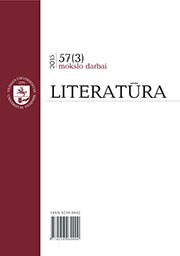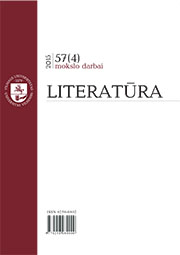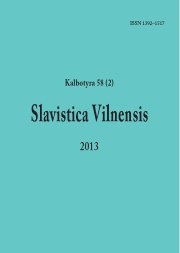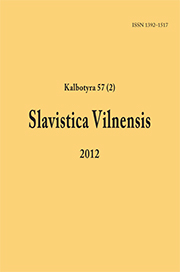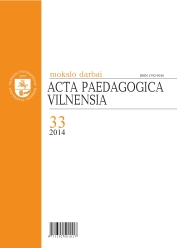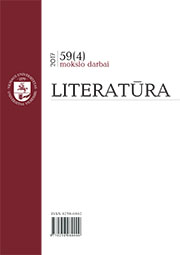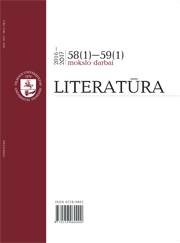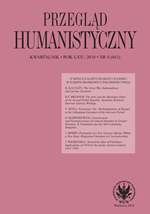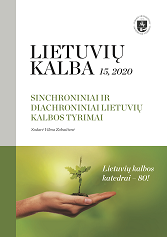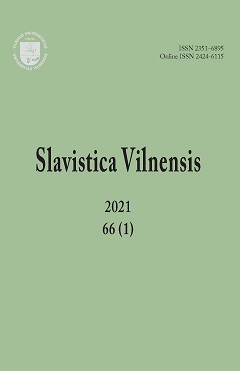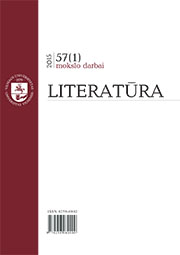
„NEMATOMI MIESTAI“ LIETUVIŲ LITERATŪROS „VARTŲ SERGĖTOJŲ“ DISKURSE
The article discusses the relation of Lithuanian literature with the country and the cities by invoking sociological concepts: “literary field” (Pierre Bourdieu) and “gatekeeper”. The investigation is questioning the image of Lithuanian literature as “agrarian” which is formed and legitimized in the discourse by Lithuanian literature gatekeepers – precisely in the literary history, anthology and textbooks for pupils.Interviews with teachers and writers are also included in the analysis. The investigation reveals that the image of “agrarian” Lithuanian literature seems artificial, homogeneous and too generalizing. It suppresses the significance of cities to Lithuanian literature and culture, because: 1) many Lithuanian writers have urban or estate origins, come from craftsman’s,workers’ or educated families, furthermore, many those who have peasant origins left early for schools in the cities or seminaries; 2) quite a few Lithuanian writers contest the stereotypical notion of Lithuanian identity as agrarian and stress the importance of cities to themselves; 3) innovative poetic changes are connected with “city writers” (i. e. Henrikas Radauskas, Antanas Škėma); 4) after the Independence of Lithuania, increasingly more literary narratives of cities appear; 5) the comparatists emphasize the relation between images of the nation / ethnicity / state and the (capital) city – this relation is constructed in Lithuanian literature as well (i. e. novels by Markas Zingeris). The article also seeks to shed a light on the importance of a particular city of Lithuania – Kaunas, which have strong links with Lithuanian national identity and literature.
More...
